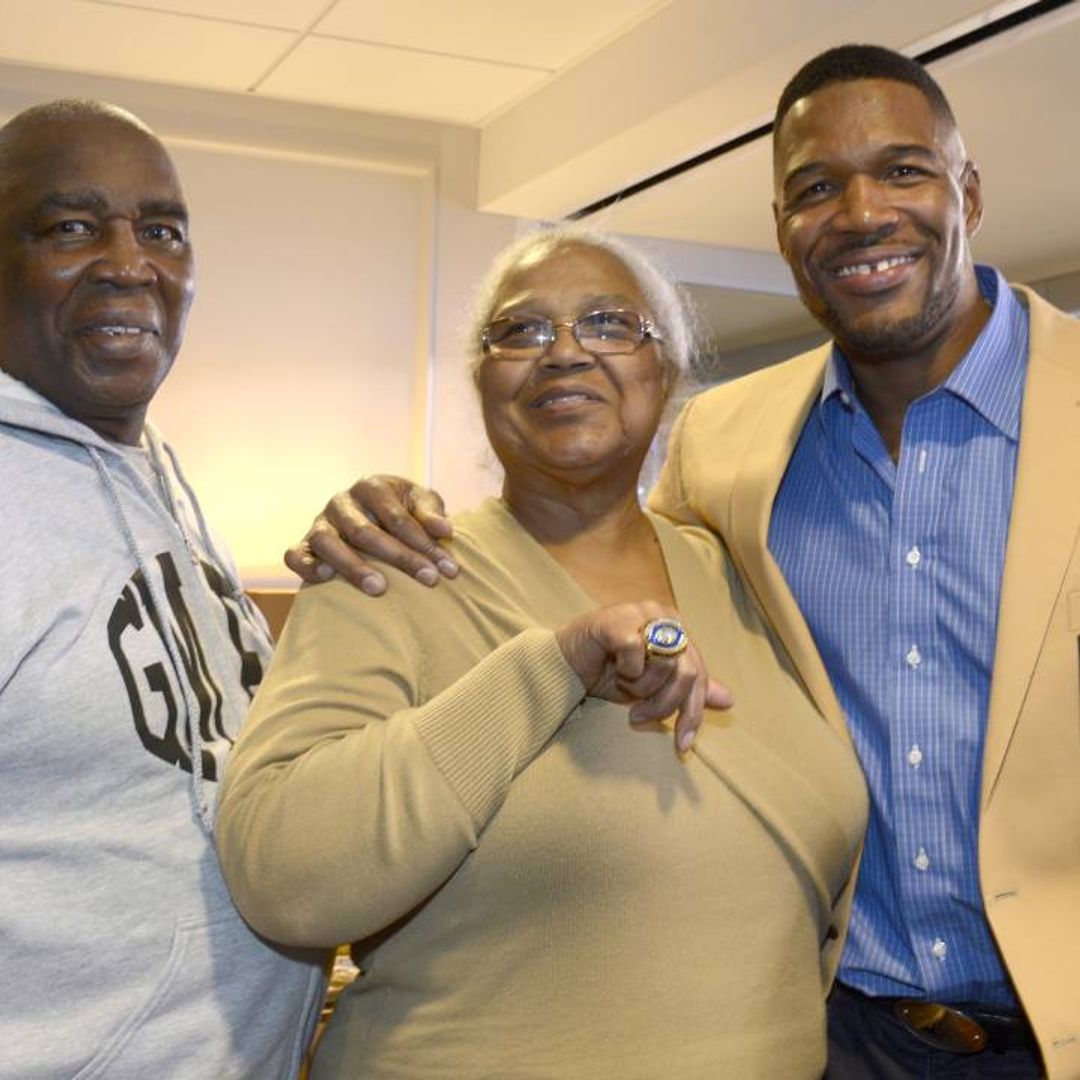:max_bytes(150000):strip_icc():focal(734x9:736x11)/michael-strahan-011623-a94f52dba0fc48e6af89bb000fb52813.jpg)
The sight of Michael Strahan, the famously resilient Hall-of-Fame defensive end turned television host, visibly breaking down on live television sent a wave of powerful emotion across the nation. Millions tuned in to see the normally unflappable anchor struggle for composure, his voice cracking as he whispered the haunting line: “If only I could fulfill what she wished for… just once.” But what truly left viewers speechless was not the tears themselves, but the revelation of the secret behind that final, simple promise he made to his mother—a promise Strahan admits still haunts him to this day.
The heartbreaking moment occurred during a segment where Strahan was discussing the profound impact of familial support during life’s most difficult crises, a theme that has become deeply personal to him recently following his daughter Isabella’s brave battle with brain cancer. It was in this context of reflection on parental love that Strahan shifted to speak about his own mother, Louise Strahan.
What emerged was not a story of professional achievement or financial support, but a tale of a humble, consistent desire that Michael, despite his immense global success, could never quite grant her. The secret wish Louise Strahan held onto was surprisingly simple and deeply moving: she never asked for fame, wealth, or even tickets to the Super Bowl. Her desire was for Michael to simply slow down, to step away from the relentless, high-pressure world of New York television and football, and to dedicate a quiet, significant block of time solely to family, far from the cameras and the glare of fame.

For a man who has lived his entire adult life in the public spotlight—from the fierce intensity of the NFL gridiron to the demanding schedule of morning and prime-time television—that promise of stillness was the one thing he couldn’t keep. Strahan’s career has been an unrelenting pursuit of excellence, a non-stop rotation of travel, early mornings, and media commitments. His mother, in her later years, cherished the simple presence of her children and repeatedly wished he would trade a sliver of that immense career for a genuine, uninterrupted rest with them.
The moment of Strahan’s televised breakdown came from the profound, inescapable guilt that he was unable to honor that specific, personal request while she was still alive. He confessed that he was always too busy—always chasing the next achievement, always on a plane, always committed to a schedule that was too tight to allow for the spontaneous, drawn-out quiet time his mother longed for.

The promise that haunts him is not a grand, broken oath, but the failure to prioritize her simple need for presence over presents. His tearful public confession resonated because it speaks to a universal regret: the knowledge that even extraordinary success cannot buy back lost time or fulfill a loved one’s final, essential wish for intimacy.
In the wake of his daughter’s illness, Strahan admits this secret has intensified, forcing him to re-evaluate his entire life. The experience of watching his daughter fight for her life and the reminder of his mother’s unfulfilled wish have given him a clarity that career milestones never could. The promise that haunts him now serves as a painful, permanent reminder to keep the most important commitment of all: to be truly present for the family he cherishes.
The public moment of vulnerability—a raw, honest admission of regret from a man known for his power—has since been hailed as one of the most powerful and relatable moments on television this year. It was a stark reminder that even the biggest stars are vulnerable to the quiet, heartbreaking burden of an unkept, loving promise.



